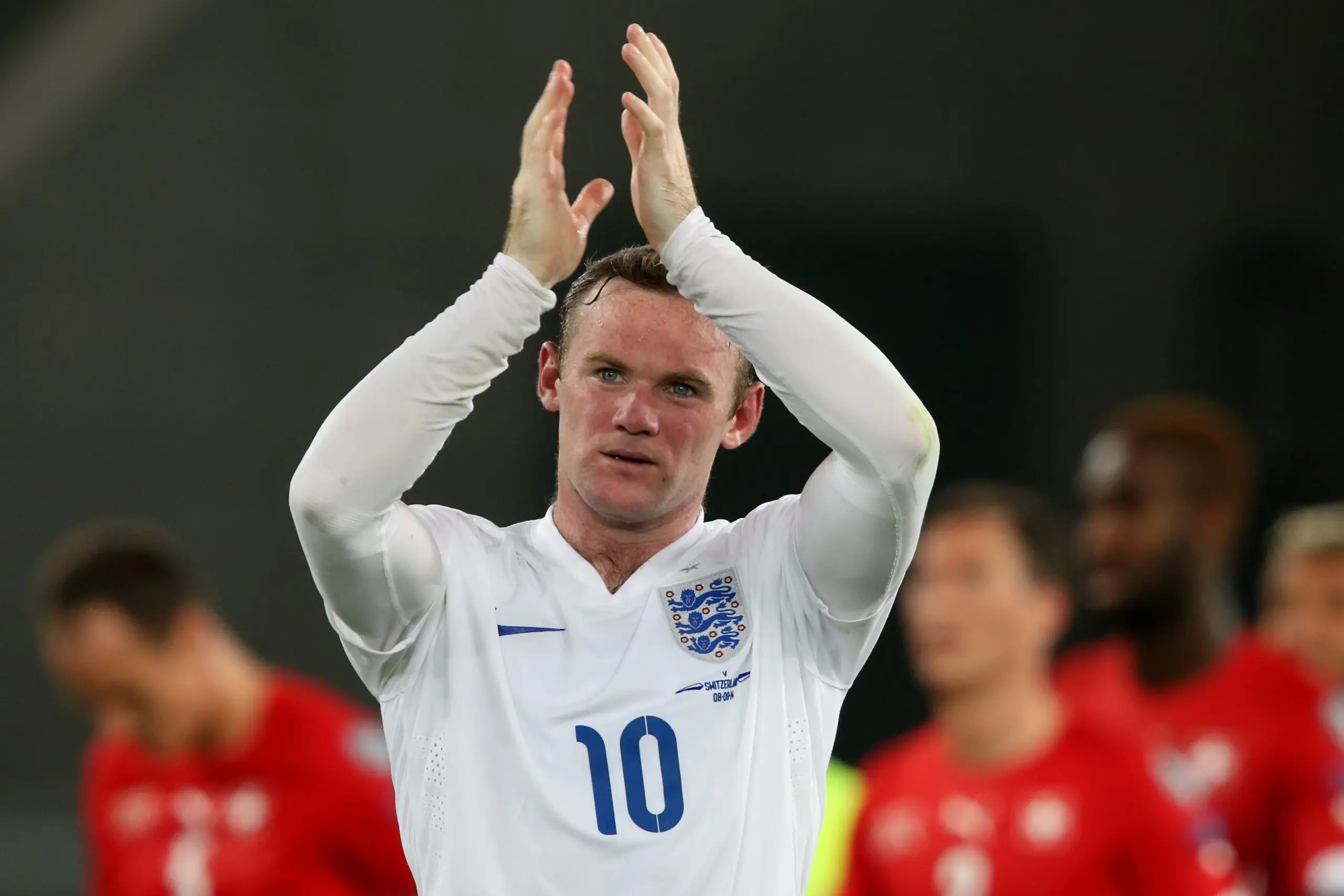6,727 days. That is how long ago Wayne Rooney made his senior debut as a footballer. In his long and illustrious career, Wazza pretty much did and won it all (except an international trophy).
Now, ‘Roonaldo’ has decided to hang up his boots in favour of smoother patent leather shoes, so let’s take a look back at the last 18-odd years when he has graced football pitches all around the world.
An early introduction
Rooney joined the Everton youth set-up aged nine after scoring 99 goals in one season in a local junior league – ninety-nine. That was a sign of things to come, and they started on July 15, 2002, when Rooney netted for Everton in a friendly against SC Weiz, an Austrian club.
About a month later, the teenager made his Premier League debut when he started in Everton’s match against Tottenham Hotspur. Spurs fans, being Spurs fans, tried to get inside his head as they shouted ‘Who are ya?’ every time he touched the ball, but Wazza responded with what in Twitter slang would be called a ‘dub’, by assisting his side’s first goal.
At the tender age of 16 years and 360 days, Rooney scored his first Premier League goal against Arsenal, a sensational last-minute winner which ended the then-mighty Gunners’ 30-match unbeaten run. That made him the league’s youngest-ever scorer at the time, and to this day he sits on the podium in that list. That wasn’t his first competitive goal, though, because he did net a brace against Wrexham in the League Cup two weeks before that.
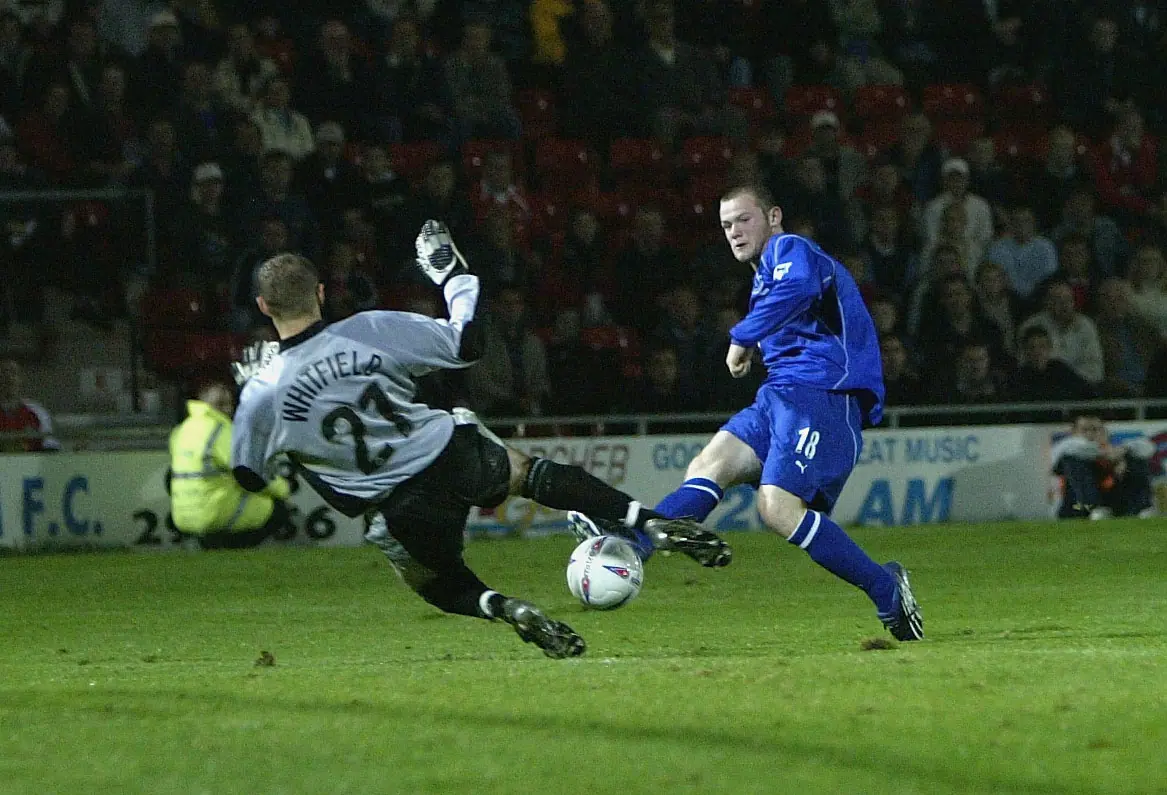
After signing his first professional contract in January 2003, Rooney scored three more goals in that season, finishing it with eight goals from 37 outings in all competitions. In February, he made his first appearance for England (after deciding against representing the Republic of Ireland) at the age of 17 years and 111 days against Australia, making him the youngest player to play for the Three Lions.
Despite blanking for Everton from August to December in 2003/04 season, Rooney scored nine times in that campaign. In the midst of his goal-drought for his club, the teenage sensation did become the youngest man to score for England when he equalised against Macedonia in a Euro 2004 qualifier.
He appeared in the main thing too, scoring a brace on matchday 2 as England faced Switzerland. Rooney scored two more times in the final group stage match against Croatia, but his (and England’s) tournament ended bitterly as he was injured against Portugal in the quarter-finals and the Three Lions lost on penalties. (Spoiler alert: this happens very often.)
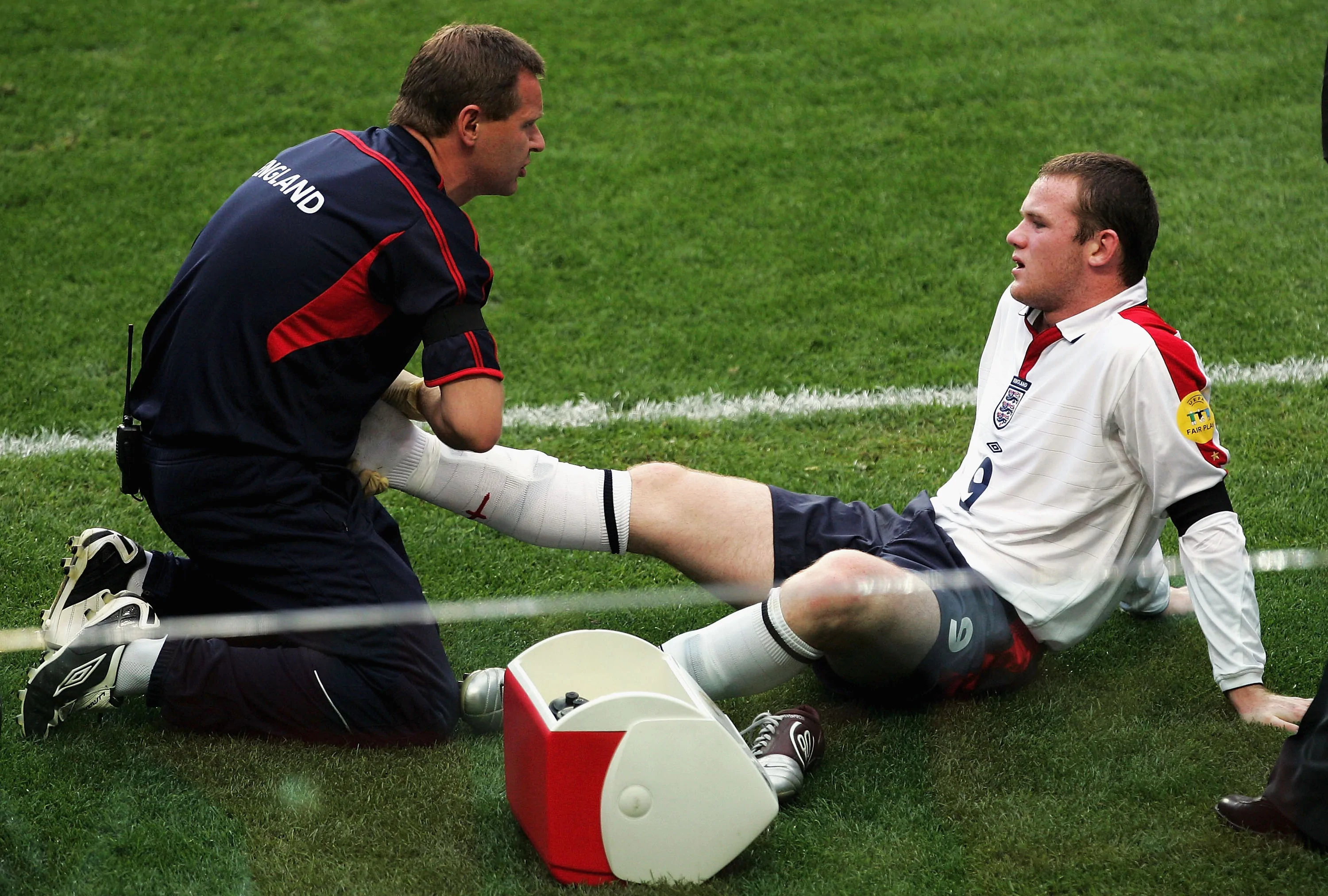
The Wonder Boy had firmly announced his arrival, and now it was time for him to take on a bigger challenge.
Joining the big boys
Despite being one of the best-paid teenagers in the league (and truthfully, the world), Rooney decided to hand in a transfer request in the summer of 2004. Everton offered a new contract which was even more lucrative, but the young man was not interested in money. The likes of Newcastle United and Chelsea were said to be interested in Rooney’s signature, but it was Manchester United who received that after paying £25.6 million – the highest transfer fee for a teenager at the time.
Rooney can do the lot. Eventually he’ll have all the United records.
– Denis Law
Rooney would immediately prove that he had all the potential in the world by scoring his first professional hat-trick on debut in the Champions League against Fenerbahçe, becoming the youngest man to do so at Europe’s greatest stage. That season was relatively disappointing for the Red Devils as it ended trophyless, but Rooney certainly impressed with 17 goals in all competitions, winning the PFA Young Player of the Year award and finishing as his side’s top-scorer in the league.
The Englishman went on to add 41 goals in over 100 appearances in all competitions over the next two campaigns (including four in the Champions League knockout stages), finally winning his first trophy in red. It wasn’t a small deal like the League Cup either – it was the Premier League itself.
Before that, Rooney just managed to feature in the 2006 World Cup as he was rushed back from a foot injury. That decision turned out to be unwise, though, as he clearly looked out of shape, and failed to score a single goal in the tournament. England lost to Portugal on penalties in the quarter-finals once again, and this time, Rooney didn’t partake in the spot-kicks because he was sent off just after the 60th minute.
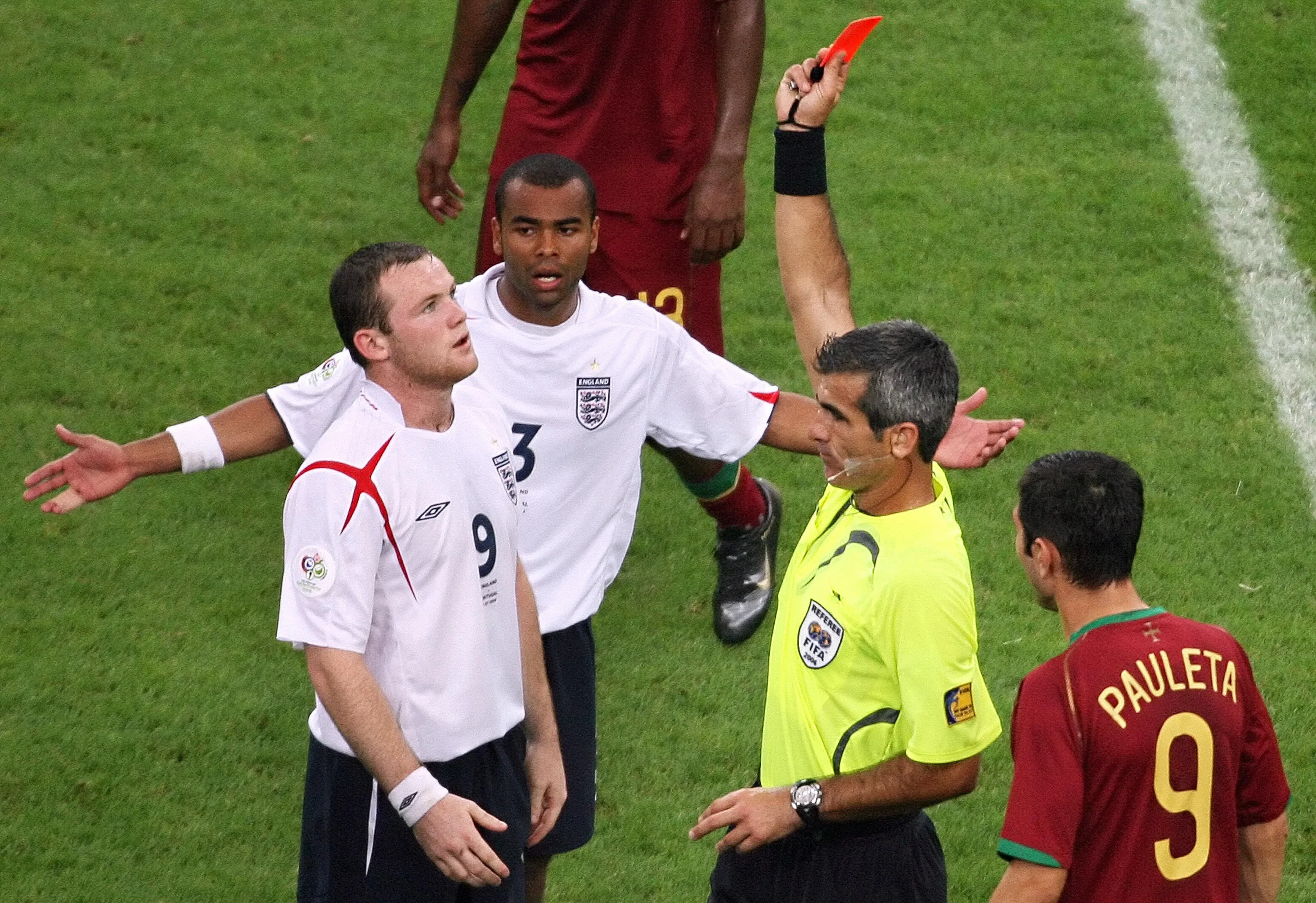
Becoming one of the big boys
Although Wayne Rooney missed a couple of months worth of action in the 2007/08 season, he thoroughly enjoyed it as he lifted both the Premier League and Champions League after scoring 16 times in the two competitions.
The ‘new Pelé’ added 54 goals to his club tally in the two subsequent seasons, including some crucial strikes in the FIFA Club World Cup final, a stoppage-time winner against Manchester City in the League Cup semi-final and a couple of hat-tricks elsewhere.
He was in fine form for England too, netting nine times in the 2010 World Cup qualifiers – making him his country’s top-scorer in that section. However, in the real thing itself, both Rooney and England went missing, as the United star failed to score a single goal while the Three Lions were knocked out in the round of 16.
However, his time at United was not fully devoid of controversy. Rooney missed a couple of months in the initial stages of the 2010/11 season through an ankle injury, or at least Sir Alex Ferguson thought so. The Englishman thought he was being dropped for other reasons, eventually leading the Scottish tactician to publicly state that Rooney wanted to leave. The player and his representatives stated that this was down to ambition and not money, but they soon took a u-turn as Rooney signed a five-year contract extension.
He returned to first-team action in November, scoring a few goals here and there until the Manchester derby in February. In the 78th minute of that match, Rooney scored an outrageous overhead kick which proved to be the winning goal, later stating that it was the ‘best goal of his career’. It certainly is one of the most iconic moments in Manchester Derby history.
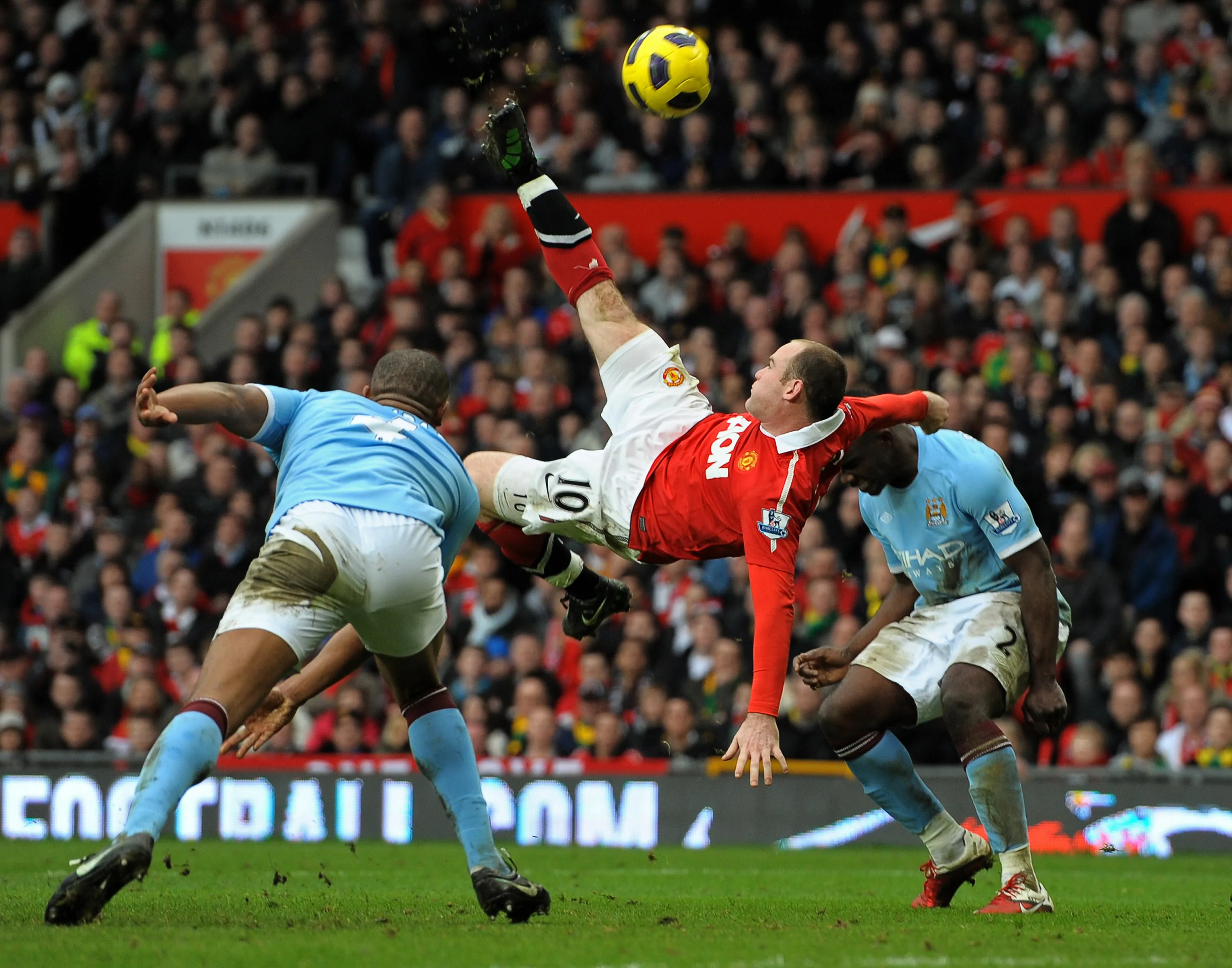
After netting 50 goals in all competitions in the 2010/11 and 2011/12 seasons, Rooney looked set to be lifting yet another Premier League title until some Sergio Agüero decided to score in the very last minute of the very last match of the season. On the bright side, it was around this time that Rooney produced some of the finest specimens of English literature.
Just sat here thinking about Wayne Rooney's biggest contributions to the game and indeed, our lives: pic.twitter.com/RT7p06okhC
— Red Voices (@RedVoicesMUFC) January 15, 2021
After that heartbreak, Rooney went to the European Championships with England. Despite another encouraging qualifying campaign where England finished top of the group, Rooney was ineligible for the first two group stage matches in the main tournament due to a red-card suspension he received in the last qualifier. England progressed to the knock-out stage, though, but were once again eliminated on penalties in the quarter-finals, this time by Italy.
Difficult times
Wayne Rooney faced stiff competition from new signing Robin Van Persie for a starting spot in the 2012/13 season, but he did manage to get 22 of those in the Premier League, contributing to as many goals in the process. Manchester United marched on to yet another league title, and with Sir Alex Ferguson announcing his retirement towards the end of the season, Rooney handed in another transfer request.
However, David Moyes, the heir to Sir Alex’s throne, clearly stated that Rooney was not for sale, so interest from the likes of Chelsea, Arsenal, Real Madrid and Paris Saint-Germain did not materialise. He scored his 200th goal for Manchester United in the 2013/14 season, signing a contract extension until 2019 midway through it. However, the club as a whole severely underperformed, and Moyes was quickly dismissed.
Once again, international football proved to be detrimental for Rooney, as he was criticised for his performances in the 2014 World Cup where England were knocked out in the group stage despite contributing to both of his side’s goals by scoring and assisting.
Louis Van Gaal instated Wayne Rooney as his side’s captain following the departure of Nemanja Vidić. The Englishman embraced this responsibility well, sometimes even playing out of position in midfield to help his side, with his performances being recognised by everyone as he won the Premier League Player of the Month award for December.
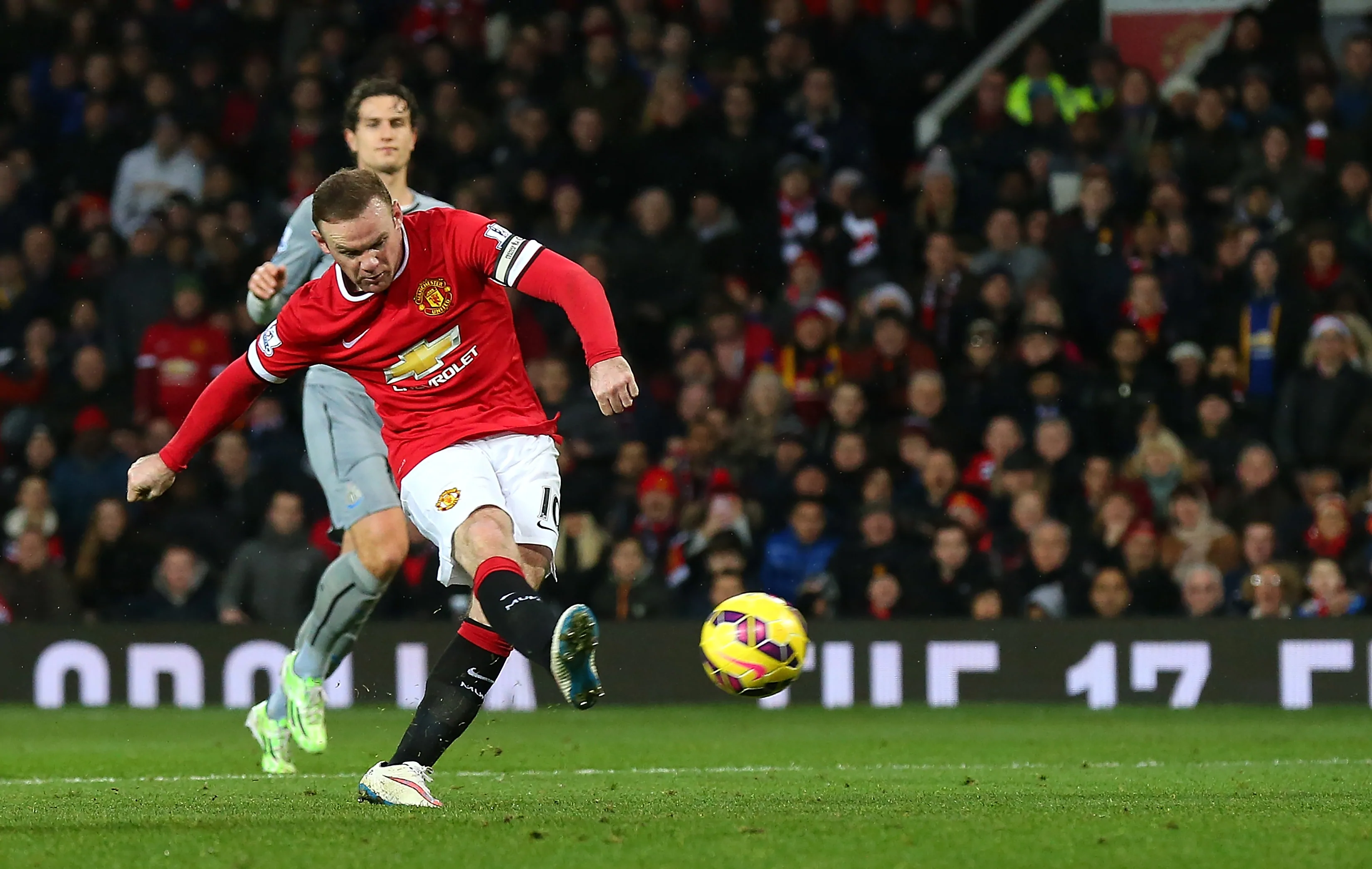
Manchester United and England legend
If Wayne Rooney left in 2013 (when he handed in that transfer request), he would undoubtedly have been remembered as one of Manchester United’s best players. But, he stayed with the Red Devils, cementing his place as an irrefutable club legend.
In the 2015/16 season, Rooney set several records, including becoming the Premier League’s second-highest all-time top-scorer, most goals for one club in the Premier League and 500 appearances for Manchester United. At the end of that season, he captained England in the Euros.
That ended as it always had historically – with disappointment. Although Rooney broke a few individual records as he got his 100th England cap and became the country’s all-time top-scorer with his 50th goal, later also scoring his 300th professional goal, England were ousted from the Round of 16 yet again – this time by Iceland.
At United, though, he continued to perform well. In the 2016/17 season, he scored 15 goals, including three in European competitions which made him the club’s all-time top-scorer in the continental stage. Finally, in his last season at the club, Rooney became Manchester United’s all-time top-scorer by netting his 251st goal with a splendid free-kick, surpassing Sir Bobby Charlton’s record.
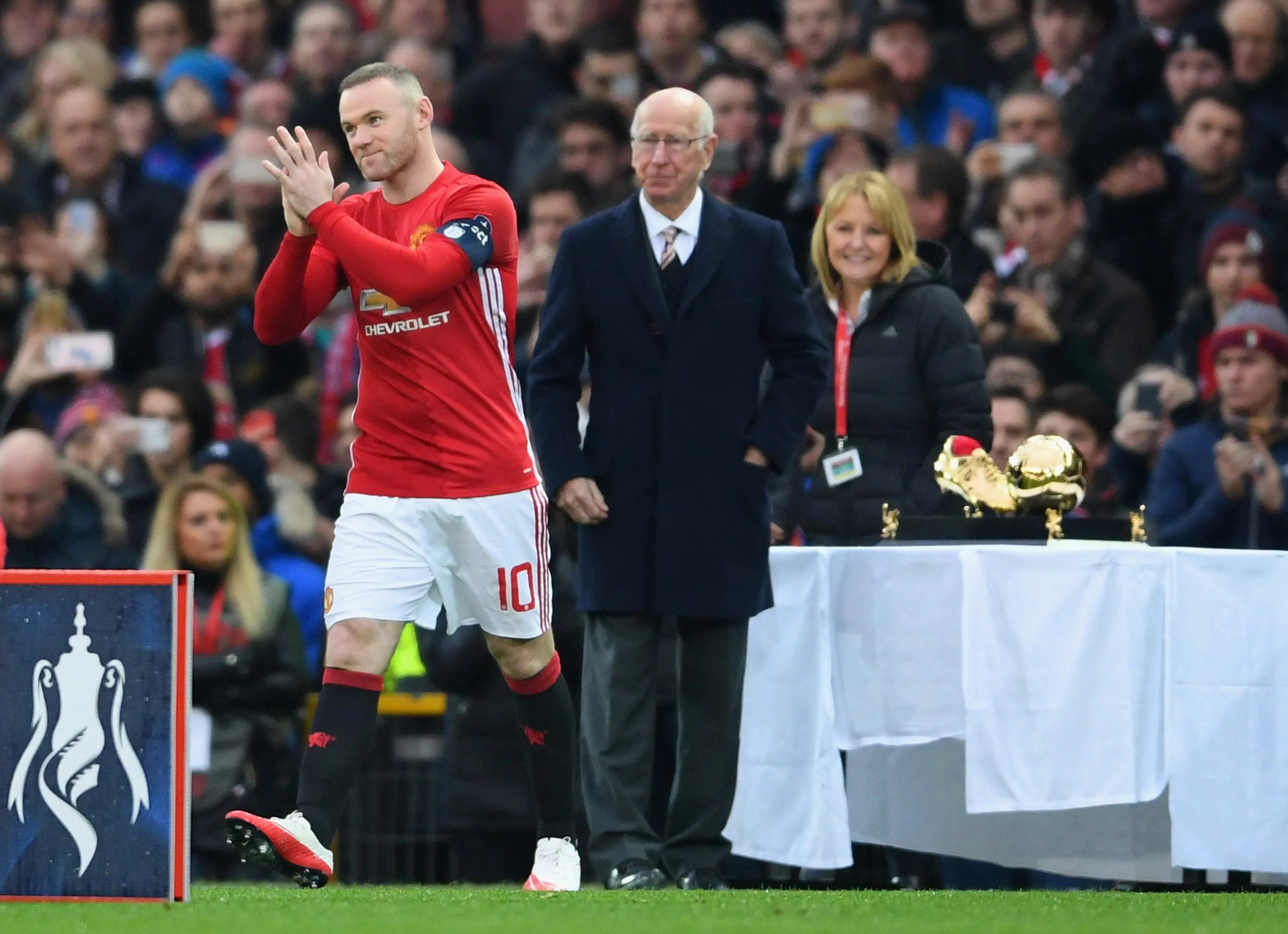
At the end of the 2017/18 season, Rooney finally decided to leave Manchester United, having done it all with the team on both an individual and club level.

Post-United career
Wayne Rooney returned to boyhood club Everton for the 2017/18 season. After scoring on his second league debut for the Toffees, he scored his 200th Premier League goal against Manchester City. Soon thereafter, he scored his first Everton hat-trick, capped off with a strike from inside his own half. Finally, in December, he brought up his 103rd Premier League assist, climbing up to third in the all-time league assists chart.
After a season back in Merseyside, Rooney decided to venture out of England for the first and only time in his career when he joined D.C. United in the MLS. After assisting on debut and being named captain a couple of games in, Rooney guided the capital club to the play-offs. Although they were knocked out in the first round, he was named MVP as he contributed to 18 goals in 21 appearances.
In his first full season of MLS action, Rooney once again guided D.C. United to the play-offs with 18 more goal-contributions. His scalps also included his first MLS hat-trick, but this also happened to be his last, since he announced that he would be returning to England to join Derby County as a player-coach, while Phillip Cocu would continue as manager.
After debuting as captain and assisting a goal in the same match, Rooney went on to contribute to eight more goals in the Championship. However, with Cocu failing to live up to expectations, he was dismissed in November 2020, leaving the door open for Rooney to take over as interim manager with three other equally-positioned coaches.
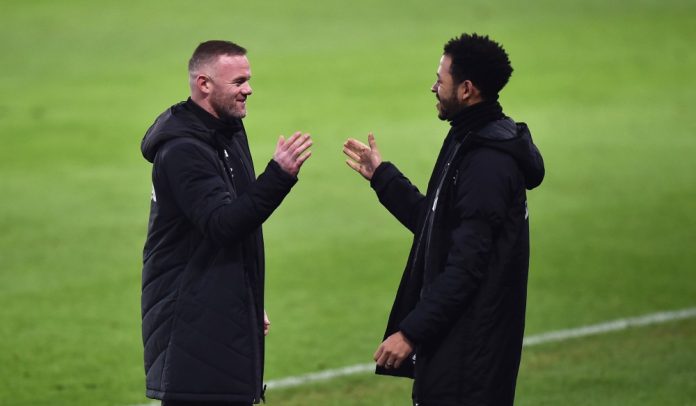
The interim group oversaw nine matches, winning three of them and losing only two. Clearly, the Rams’ results started to improve, and the club felt that Rooney was a key factor in this. So, they have appointed him as their manager with the three remaining co-interim managers taking up roles in the coaching staff. To focus on his primary job, Wayne Rooney decided to hang up his boots for good.
Legacy, statistics and records
Wayne Rooney might not have won any major trophy or even arguably performed at crucial stages for the English National Team, but there is absolutely no doubt that he is one of the greatest players this football-frenzied country has produced. He had everything – energy, pure technical ability, insane skill, versatility, understanding of the game, and, above all, a great eye for goal.
Anyone who has watched him will certainly attest to his brilliance, but for those who have not, here are some of his mind-boggling statistics and records:
- 883 – Appearances for club and country.
- 366 – Goals for club and country
- 53 – Goals for England, a national team record.
- 120 – England caps, a record for an outfield player, and just five short of Peter Shilton’s overall record.
- 253 – Goals for Manchester United, a club record.
- 208 – Goals scored in the Premier League, only short of Alan Shearer’s tally of 260.
- 183 – Most Premier League goals scored for one club.
- 200 & 100 – The only footballer to have scored at least 200 goals and provided at least 100 assists in the Premier League.
- 34 – Most goals scored by an English player in the UEFA Champions League
- 12 – Major honours won with Manchester United – five Premier League titles, three League Cups, an FA Cup, a Champions League, a Europa League and a FIFA Club World Cup.
- 12 – Most Premier League seasons reaching double figures in goals
- 11 – All-time top goal-scorer in Manchester Derby.
But, even after all of that, Rooney was an extraordinarily ordinary human being, as is evident in his still-undeleted Twitter history. So, we can only say one thing to commemorate a soft and quiet end to an otherwise-explosive and illustrious career:
https://twitter.com/_CarltonCole9/status/1350093207317704704
Stats courtesy Sky Sports and Whoscored.
Add Sportslens to your Google News Feed!
